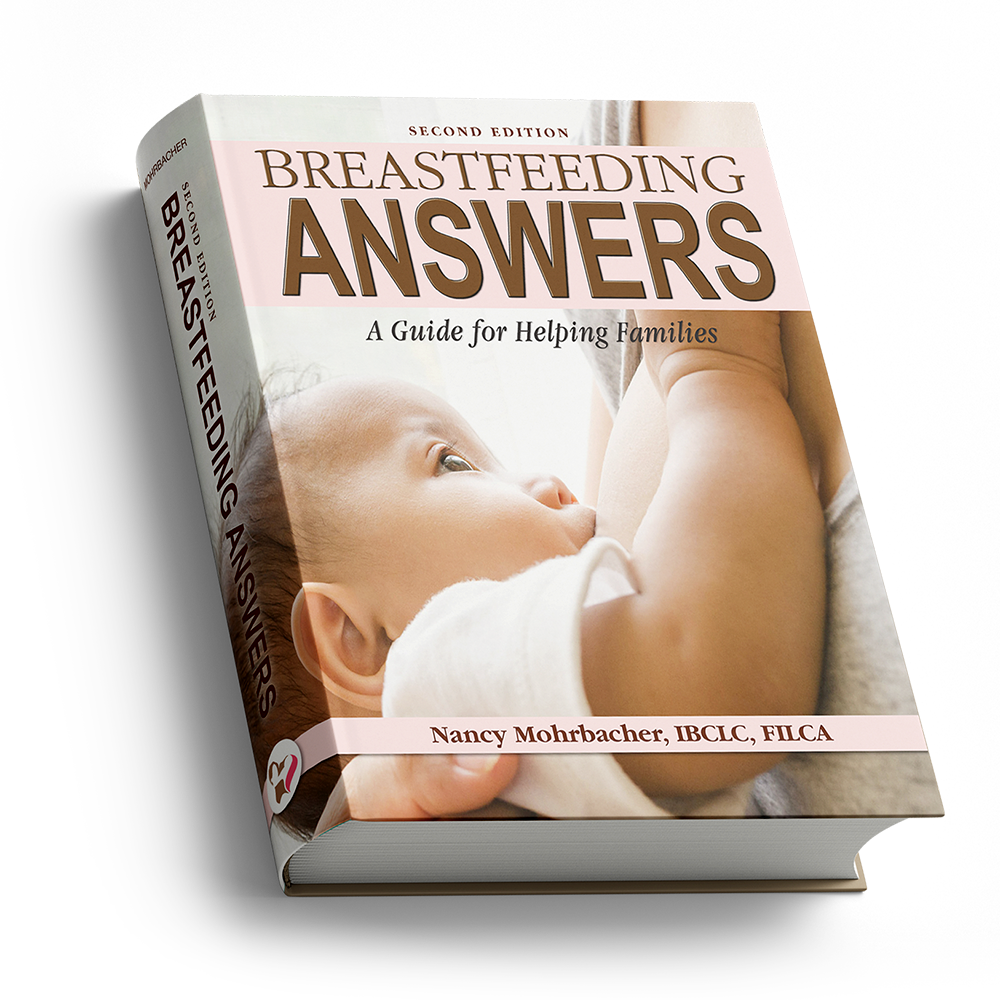Formula Use & Breastfeeding: The Moral of the Story
/Earlier this week a study appeared in Pediatrics that has the media buzzing about whether giving formula in the first few days can actually improve breastfeeding rates. Both Time magazine and the New York Times featured stories on this. Not surprisingly, the media stories (and in my opinion, the researchers themselves) missed the central point.
This study compared breastfeeding outcomes in two groups of mothers whose babies had lost enough weight shortly after birth to be considered at risk. Both groups were given lactation help. In the control group, the mothers were encouraged to exclusively breastfeed. In the intervention group, after each breastfeeding the mothers were instructed to feed their babies by syringe a tiny amount of formula supplement: 10 mL, or about one-third of an ounce. This is about how much colostrum babies consume at each breastfeeding during the first 2 days of life.
The study found that more of the mothers who gave this small amount of formula after feedings breastfed longer and more exclusively than the mothers who didn’t.
Unlike the authors and the media, I don’t interpret these results to mean that early formula can help breastfeeding. In addition to all of the valid points made by other breastfeeding supporters, what was noteworthy to me was that the mothers in the intervention group were taught to supplement their newborns with biologically appropriate feeding volumes consistent with the recommendations of the Academy of Breastfeeding Medicine.
Many parents who supplement—including I’m sure those in this study’s control group—overfeed their babies incredibly, either without realizing it or because they are unwittingly instructed to do so by health professionals. Yesterday I spoke to a mother who was told by a pediatrician to make sure her jaundiced 4-day-old took 2 oz. (60 mL) at every feeding, which is twice the size of a 4-day-old’s stomach. To accomplish this, she was pumping, adding formula to her milk, and force-feeding this massive amount to her newborn.
My take-away message from this study is that any mother who supplements her newborn (whether with expressed milk, donor milk, or formula) should learn the appropriate amount to feed so she can prevent the kind of rampant oversupplementation that undermines breastfeeding and increases later risk of obesity. Babies overfed at this magnitude breastfeed much less often and milk production suffers.
What are the long-term effects of early overfeeding? One study followed to adulthood 653 people who were formula-fed from birth. Amazingly, greater weight gain during the first 8 days of life was associated with increased incidence of overweight 20 to 30 years later. These researchers concluded that the first 8 days may be a “critical period” during which human physiology is programmed. This may mean that breastfed babies’ greater weight loss after birth and slower return to birth weight may help promote a healthier metabolic program, which reduces the risk of overweight and obesity during childhood and beyond. At the very least, it most certainly means that parents and health professionals should be extremely wary of overfeeding newborns. To me, that’s the real moral of the story.
References
Academy of Breastfeeding Medicine. ABM clinical protocol #3: Hospital guidelines for the use of supplementary feedings in the healthy term breastfed neonate.Breastfeed Med 2009; 4(3): 175-82
Bakalar, N. How formula can complement breastfeeding.New York Times, May 13, 2013.
Flaherman, V.J., Aby, J., Burgos, A.E., Lee, K.A., Cabana, M.D., & Newman, T. Effect of early limited formula on duration and exclusivity of breastfeeding in at-risk infants: An RCT.Pediatrics 2013; 131(6):1059-65.
Naveed, M. et al. An autopsy study of relationship between perinatal stomach capacity and birth weight. Indian J Gastroentero 1992;11(4):156-58.
Rochman, B. How formula could increase breastfeeding rates.Time, May 13, 2012.
Stettler, N. et al. Weight gain in the first week of life and overweight in adulthood.Circulation 2005; 111:1897-1903.
Stuebe, A. Early, limited data for early, limited formula use. Academy of Breastfeeding blog. May 13, 2012






